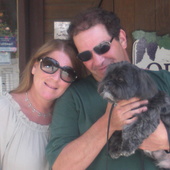Welcome to Wayne Township New Jersey
Wayne Township is located in the heart of Passaic County, New Jersey, less than twenty miles from midtown New York. Wayne Township offers its citizens and guests a balanced suburban community. From shopping centers to museums, an excellent modern free public library and lake communities loaded with recreational facilities, Wayne has something for everyone.
Waynes 27 square miles of rolling terrain make it the second largest municipality in Passaic County. Long before the White Man, Wayne was inhabited by quiet, industrious Indians who farmed the rich meadowlands and hunted and fished in the woods and streams. Their legacy lies in the many place names of Indian origin, which have given their identity to Wayne' community landscape.
In 1694, the English in New York City sent a young surveyor, miner and land speculator named Arent Schuyler to North Jersey and beyond to check on a rumor that the French were trying to rouse the Indians to rebel against the English. Schuyler found the rumor to be false, but discovered a rich fertile valley where the Indians grew a variety of crops. Schuyler reported his findings to the English in New York City; then convinced seven prominent men to invest in the purchase of the land he referred to as the Pompton Valley.
The purchase of the land was concluded on November 11, 1695. The area now known as Wayne Township then became part of New Barbadoes in Essex County. In 1710, the same area became part of Saddle River Township in Bergen County. Arent Schuyler moved to Belleville, New Jersey, where his servant brought him a bit of metal that unearthed a copper mine. In 1837, the residents of Wayne found themselves in Manchester Township in the newly named Passaic County.
Finally, on April 12, 1847 the first Wayne Township organization meeting was held at the Henry Casey House on the Paterson Hamburg Turnpike. The first mayor, called the Chairman of the Township Committee until 1962, was William S. Hogencamp. The Citizens voted to name the town for the dashing hero of the Revolution, General Anthony Wayne.
Throughout the 18th and 19th Centuries, Wayne Township was a peaceful farming community. It had its share of grist, saw and cider mills, as well as blacksmith shops. Slaves worked on farms until they were freed in New Jersey in 1826. There were few local industries. Some iron was mined, and brick yards made use of rich deposits of clay. Gunpowder was made by the firm of Laflin and Rand on Ryerson Avenue.
The Morris Canal ran through the southwestern part of Wayne carrying produce to market and coal from Pennsylvania. The canal was replaced by the railroad at the end of the 19th Century. One railroad car could carry more than a canal boat and be used the year round. Season freezing of the canal limited its use. The railroad brought vacationers, as well as produce, in the early 20th century. In the summer hordes of people from Manhattan and Brooklyn came to live in the summer bungalows and enjoy the beautiful rivers.
World War II made tremendous change to Wayne. Summer bungalows were converted to year round living residences to accommodate the people moving to Wayne to work in war related industries. Following the war, farmland was converted to residential living. The growth of Wayne resulted in a new form of government in the 1960's. A mayor, council, business administrator type of government was instituted in 1962. An antiquated postal system was modernized by an energetic leadership of the local Chamber of Commerce.
Modern highways have made Wayne Township a virtual crossroad in North Jersey. Routes 23, 46 and 80 and the Paterson Hamburg Turnpike have made Wayne easily accessed for business and homes. Several national firms have located to the Wayne area.
Education instruction began in Wayne in a dugout school near Brandon Avenue. Legend says Anthony Wayne sheltered his horse here during the Revolution. Today Wayne's excellent schools number nine elementary, two middle and two senior high schools in addition to several private schools for all ages.
Wayne has six historic houses that are on the State and National Registers: Schuyler-Colfax House, Dey Mansion, Van Riper-Hopper House, Mead-Van Duyne House, Van Saun House and Ryerson House. In addition, there are twenty historically significant sites.
Today Wayne offers many things for people of all ages; nursery schools, excellent elementary and secondary schools, churches for all faiths, an excellent modern library, convenient shopping centers, swimming pools, lakes and organized recreation for all to provide quality living for today's citizens.
If you are interested in knowing more about Wayne Township and properties currently available in the Wayne area, log onto our Wayne property search engine at www.bluerealtynorth.com

Comments(0)